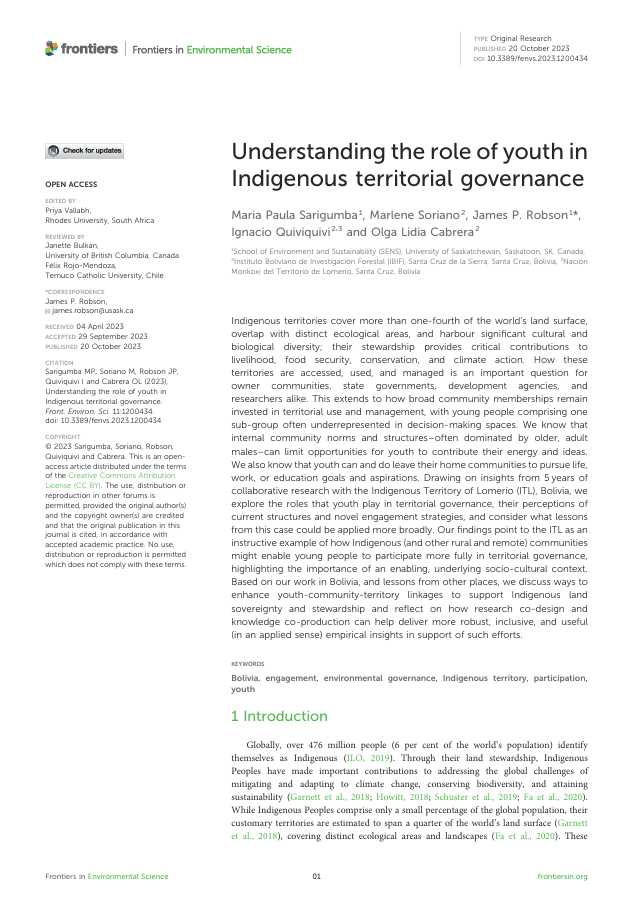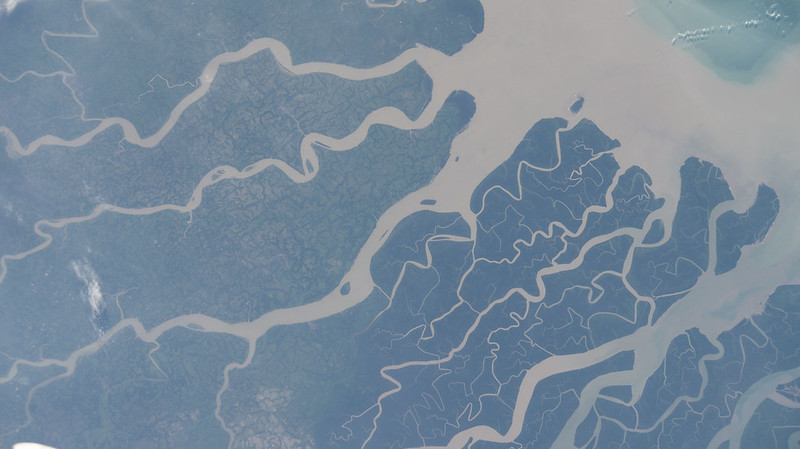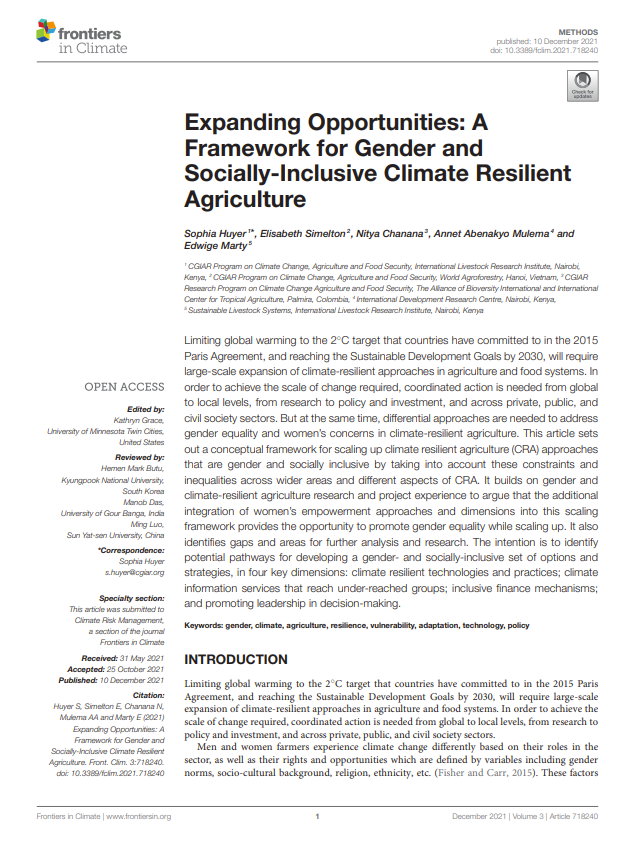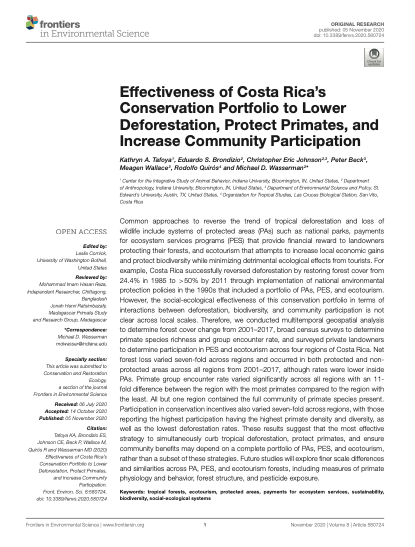Location
Frontiers is a leading Open Access Publisher and Open Science Platform
Our journals are led and peer-reviewed by editorial boards of over 100,000 top researchers. Covering more than 900 academic disciplines, we are one of the largest and highest-cited publishers in the world. To date, our freely accessible research articles have received over 1 billion views and downloads and 1.6 million citations.
We strive to continuously empower the academic community with innovative solutions that improve how science is published, evaluated and communicated to researchers, innovators and the public.
Members:
Resources
Displaying 1 - 5 of 5Understanding the role of youth in Indigenous territorial governance
Indigenous territories cover more than one-fourth of the world’s land surface, overlap with distinct ecological areas, and harbour significant cultural and biological diversity; their stewardship provides critical contributions to livelihood, food security, conservation, and climate action. How these territories are accessed, used, and managed is an important question for owner communities, state governments, development agencies, and researchers alike.
Adopting the Local Knowledge of Coastal Communities for Climate Change Adaptation: A Case Study From Bangladesh
Bangladesh has a unique coastal system with both proximity of climatic vulnerability and opportunity, having rich coastal resources. The upkeep of people's livelihoods in the coastal zone largely depends on the degree to which key stakeholders at all levels of decision-making can participate in climate adaptation planning and implementation processes.
Expanding Opportunities: A Framework for Gender and Socially-Inclusive Climate Resilient Agriculture
Limiting global warming to the 2°C target that countries have committed to in the 2015 Paris Agreement, and reaching the Sustainable Development Goals by 2030, will require large-scale expansion of climate-resilient approaches in agriculture and food systems. In order to achieve the scale of change required, coordinated action is needed from global to local levels, from research to policy and investment, and across private, public, and civil society sectors.
Women's Right to Land Between Collective and Individual Dimensions. Some Insights From Sub-Saharan Africa
Women represent a large part of the 2.5 billion people who depend on lands managed through customary, community-based tenure systems and are especially reliant on commons for their lives and livelihoods. They have very often limited and unsecured access to land and natural resources and tend to be excluded from decisions concerning them.
Effectiveness of Costa Rica´s Conservation Portfolio to Lower Deforestation, Protect Primates and Increase Community Participation
Common approaches to reverse the trend of tropical deforestation and loss of wildlife include systems of protected areas (PAs) such as national parks, payments for ecosystem services programs (PES) that provide financial reward to landowners protecting their forests, and ecotourism that attempts to increase local economic gains and protect biodiversity while minimizing detrimental ecological effects from tourists.





